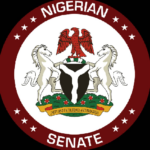The Christian Association of Nigeria (CAN) on Thursday said the recently assented Companies and Allied Matters Act (CAMA) 2020 by President Muhammadu Buhari, would harm the nation and its citizens.
The CAMA, which was signed on August 7, this year by President Buhari has continued to generate reactions. While industry players hail the law, saying it would boost the ease of doing business, some civil society groups have described it as repressive and draconian.
- CAMA to improve business environment – Minister
- Ease of doing business: Senate begins CAMA amendment process
Lawyers who spoke to Daily Trust said though the intention of the law was good, the problem could be with the way it was passed. They maintained that the government must do something to address concerns raised.
Speaking on Thursday, CAN said they had earlier rejected a similar bill.
According to CAN President, Dr. Samson Ayokunle, ‘‘the law, to say the least, is unacceptable, ungodly and an ill-wind that blows no one any good. It is a time bomb waiting to explode.
“We recall that during the first term of the president, there was a public hearing conducted by the National Assembly on the Non-Governmental Organisations Bill tagged ‘Bill for an Act To Provide For The Establishment Of The Non-Governmental Organizations Regulatory Commission For The Supervision, Coordination And Monitoring Of Non-Governmental Organizations’, which was attended by CAN and many NGOs. At the public hearing, the bill that sought to bring the religious organisations and NGOs under the control and influence of the government was totally rejected because it would snuff life out of the church and rank the church as a secular institution under secular control.
“We thought it was all over until we heard of the CAMA that was assented to by the President, making the rejected bill a law. The satanic section of the controversial and ungodly law is section 839(1)&(2).
“While we are not against the government fighting corruption wherever it may be found, we completely reject the idea of bringing the Church, which is technically grouped among the NGOs, under control of the government,” Ayokunle said in the statement signed on his behalf by his spokesman, Pastor Adebayo Oladeji.
“We call on President Muhammadu Buhari to urgently return the law to the National Assembly for immediate amendment,” he added.
Controversial provisions
Daily Trust observes that CAMA 2020 empowers the CAC to suspend the trustees of a not-for-profit organisation for mismanagement, lease or even mendacity.
This new position may not be unconnected with growing public outcry over excesses of not-for-profit organisations and their trustees.
Section 839 (1) of CAMA 2020 empowers the commission to suspend trustees of an association and appoint interim managers to manage the affairs of the association where it reasonably believes that there is or has been misconduct or mismanagement in the administration of the association. This according to the law is aimed at protecting the property of the association.
Subsection 2 provides that the trustees shall be suspended by an order of court upon the petition of the commission or members consisting of one-fifth of the association, and the petitioners shall present all reasonable evidence or such evidence as requested by the court in respect of the petition.
No suit can be instituted against CAC – Expert
A review by a company law expert, Samuel Olufowose, revealed another contentious provision in CAMA 2020.
Olufowose said the amended Act provides that no suit can be commenced against the CAC before the expiration of a period of 30 days after a written notice of intention to commence the suit has been served upon the commission by the intending plaintiff and the notice is to state the cause of action, particulars of claim and reliefs sought.
The Act also empowers the Minister of Industry, Trade and Investment to prescribe by regulations, model articles of association for companies.
However, the expert believes that the amended law has benefits for the business environment in the country.
“The CAMA 2020 has been lauded widely since its passage for allowing ease of doing business and enticing SMEs, start-ups and ultimately encouraging innovations,” Olufowose said.
Old Act defective-CAC
The Registrar General of the CAC, Garba Abubakar, said prior to the amendment, the Act was defective.
He said the former law was not extensive enough because various companies had been complaining and the provisions were not well encompassing.
“Now that we have the opportunity to come up with regulations on articles, it will go a long way in bringing a better governance structure for most of the companies,” he said.
Government must address suspicion – Lawyers
Lawyers have advised that the government should clarify suspicions surrounding the amended CAMA 2020 while maintaining that it is necessary to check the excesses of non-governmental organisations.
Abdulhamid Mohammed said, ‘‘the law is a step in the right direction, actually to checkmate what is going on within the economy”.
Speaking in the same vein, Obioma Ezenwobodo, said before the amendment, churches were required to file annual returns like other companies but the main contention in the amendment is the enormous powers to the Registrar General of the CAC, to appoint trustees to some organisations, which could be wrongly used to appoint strangers into the running of such organisations.
“The Charity Commission of England, which they talk about that oversees these charity organisations; England does not have the biases in Nigeria and religion is so sensitive here and you must manage it carefully,” he said.
In his view, Inibehe Effiong, said the way the law was passed gives an impression that the government was doing something sinister.
‘Some sections are repressive, draconian’
A civil society group, the Resource Centre for Human Rights and Civic Education (CHRICED) described the law as repressive and obnoxious.
Executive Director of CHRICED, Dr. Ibrahim M. Zikirullahi, queried the intention of the law, especially the aspect that has to do with incorporated trustees.
He said, ‘It is apparent that the government has turned its law-making function into a sinister conspiracy against citizens and the target of the draconian sections of the law is the critical voices and organisations amplifying citizen’s demands for transparency, accountability and good governance.
“Section 842(2) gives the CAC draconian powers to shut down associations, without recourse to the courts.
“It also means that the CAC without recourse to the judicial process, can wake up one day, and use the ground of “unsatisfactory response” to dissolve an association of citizens. The bottom line is that even if such an association is eventually proved innocent the damage to its brand, reputation and operations are already done.”
Similarly, the Socio-Economic Rights and Accountability Project (SERAP) said the legislation may be the most repressive law in Nigeria’s history.
How charities, not-for-profits are regulated in other countries
There is no uniform international regulation for charities and non-for- profit organisations as different countries have legislations that suit their needs.
For instance, there is a Charity Commission for England and Wales for regulation of charity organisations under the jurisdiction of High Court charity law. It is worth noting that if a charity’s income exceeds £5,000 a year, it must register with the Charity Commission.
The commission investigates accusations of wrongdoing and if a serious problem is uncovered, the commission has powers to restrict transactions a charity may enter into; appoint additional trustee; freeze a charity’s bank accounts; suspend or remove a trustee; appoint an interim manager or make a referral for investigation to the police and other law enforcement agencies.
Similarly, in Scotland and Northern Ireland, there is the Office of the Scottish Charity Regulator (OSCR), which ensures that charity organisations are used exclusively for charitable purposes which benefit the public.
In the United States of America (USA), states have wide discretion over the regulation of charities even as many states do not impose significant regulatory burden on charitable corporations, in part, because charities that have special tax status are subject to Internal Revenue Service (IRS).
Presidency, Senate decline comment
When contacted, Special Adviser to the President on Media and Publicity, Femi Adesina, said the right person to speak on the matter was the Special Adviser to the President on Ease of Doing Business, Dr Jumoke Oduwole.
Efforts to get a reaction from the Minister of Industry, Trade and Investment, whose ministry oversees both the CAC and the Presidential Enabling Business Environment Council (PEPEC), were unsuccessful. His Media Assistant, Mr. Julius Toba-Jegede, said he would need to get a direct comment from the minister ‘‘considering the sensitive nature of the issue’’, but this could not be achieved at the time of going to press.
The Senate also declined comment on the issue. When contacted on Thursday, the Senate spokesperson, Senator Ajibola Basiru, simply said, “No comment”.
However, the minister recently expressed optimism that CAMA 2020 would transform the business environment in Nigeria.
Otunba Adebayo said the implementation of the CAMA would help Nigeria move up the ladder of the World Bank’s Ease of Doing Business Index as the law would further dismantle bottlenecks in business registration in the country.

 Join Daily Trust WhatsApp Community For Quick Access To News and Happenings Around You.
Join Daily Trust WhatsApp Community For Quick Access To News and Happenings Around You.

